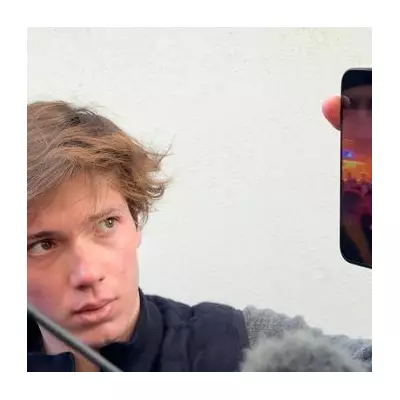
Middle-class cocaine consumption in Britain is directly financing Russia's military operations in Ukraine and espionage activities on UK soil through an elaborate global money laundering scheme, law enforcement leaders have revealed.
The Billion-Dollar Laundering Machine
A massive criminal network so extensive it purchased a bank in Kyrgyzstan is currently operating across 28 British towns and cities, collecting dirty cash from drug dealers and converting it into clean cryptocurrency. The National Crime Agency (NCA) has made significant progress against this threat, arresting 45 suspected money launderers and seizing over £5 million in cash during the past twelve months.
Deputy director Sal Melki emphasised the disturbing connection between recreational drug use and Russian state-sponsored malicious activities. "We can draw a really clear thread between someone buying cocaine on a Friday night all the way through to geopolitical events causing suffering across the world," he stated.
From British Streets to Russian Battlefields
Mr Melki detailed how profits from drug dealers and other criminals flow upstream to be laundered by these networks, with the money launderers taking their cut. These funds ultimately finance Russian intelligence projects, military operations and help state-backed organisations circumvent international sanctions.
"It's not as simple as paying a drug dealer and the crime goes away - it is funding bad things around the world," he added, highlighting the global consequences of local drug purchases.
The network's reach became particularly evident when Russian intelligence utilised a laundering operation run by Siberian millionaire Ekaterina Zhdanova, known as 'Smart', to fund a UK-based Bulgarian spy ring. This group, led by Orlin Roussev, operated from a Great Yarmouth guesthouse equipped with sophisticated surveillance technology and passed secrets to the Kremlin for three years before being convicted in March.
Evolving Sanctions Evasion Tactics
In a bold move demonstrating the network's sophistication, Russian businessman Georgy Rossi's group TGR purchased a controlling 75% stake in Kyrgyzstan's Keremet Bank through his company Altair Holding SA. This acquisition, which led to British sanctions in August, represents a new model of sanctions evasion where criminal networks "become a bank instead of using a bank."
Robin Lycka, solution architect at anti-money laundering firm Strise, explained that bringing financial infrastructure in-house gives money launderers complete control over data creation and regulatory reporting that might otherwise trigger safeguarding measures.
The NCA and Scotland Yard have targeted couriers who physically transport cash for these networks. Among those convicted was Giorgi Tabatadze, sentenced to three years imprisonment for laundering £2.2 million after officers seized over £750,000 from his car and home in April 2024.
In an innovative awareness campaign, the NCA has installed warning posters in English and Russian at service stations across Britain, specifically targeting money laundering couriers. "Millions of Britons will have seen these messages at service stations but rest assured, they were not for you," Mr Melki noted.
The message to launderers is unequivocal: "Your choice is simple: either stop this line of work, or prepare to come face to face with one of our officers and the reality of your choices. Easy money leads to hard time."
In another case demonstrating the network's adaptability, Valeriy Popovych and Vitaliy Lutsak received combined sentences of 13 years for laundering £6 million by exploiting the Russia-Ukraine conflict. They purchased vans and lorries in Britain, sold them in Ukraine, and converted profits into cryptocurrency, enabling Popovych to acquire a £1 million second home in London.
Security Minister Dan Jarvis condemned Russia's tactics, stating: "This complex operation has exposed the corrupt tactics Russia used to avoid sanctions and fund its illegal war in Ukraine. We are working tirelessly to detect, disrupt, and prosecute anyone engaging in activity for a hostile foreign state."





